The (Other) Beatitudes
“Blessed are the Peacemakers…”
from the Beatitudes of Jesus { as recounted in the Gospels }
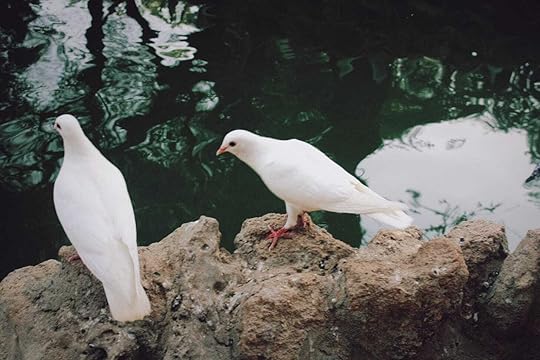 { portrait of two white rock doves in Seville, Spain }
{ portrait of two white rock doves in Seville, Spain }How do we write from the heart? This is the question that has been on my mind lately… Ever since I realized that I was writing out of grief once again. Grief is an all too familiar feeling, so writing became an all too familiar refuge. Silly of me to think the days (& nights) of needing such a crutch simply to survive were well in the past. While living in Paris, I even went so far as to start proclaiming that I officially “quit” calling myself a poet (because I stopped identifying as one).
 { most of these photos taken at isleta de los Pájaros }
{ most of these photos taken at isleta de los Pájaros }Although I ceased my writing—even as some of my best ideas were coming to me—the world hasn’t ceased its cruelty. As I turned towards a calling that felt more important for me to pursue—that of becoming a councilor—it only deepened my desire to be a source of healing & strength for others. For a time, I thought & told many that it was poetry which saved my life—but it was my own willingness to get well that did… Writing was merely the instrument which I chose to pick up.

It worked well (for a time)… It was a sharp tool, & could make deep incisions. It felt like I could dissect my soul on the surgical table of the literary arts, & it felt good to do so. Great, even—especially during the discovery of my process, & the composition of a first book—until the process itself started to feel soulless. I was no longer writing for myself, but for an audience… For accolades & awards that I tossed aside & promptly forgot about in order to pursue/produce a fresh batch.
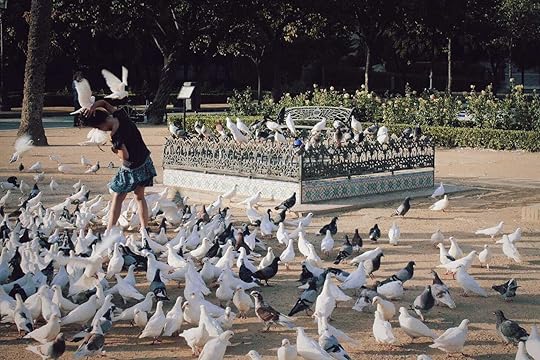
I still remember those early days of discovering poetry… How potent it could feel—how like magic in the trembling hands of a student struggling in nearly every other subject at school… I was a teenager, but I was dangerously treading water in many ways—academically, emotionally, physically, psychologically, sexually, spiritually: I was beginning to drown, & I was beginning to lose my belief in God—alongside every good thing in this world—as I had already lost faith in myself.
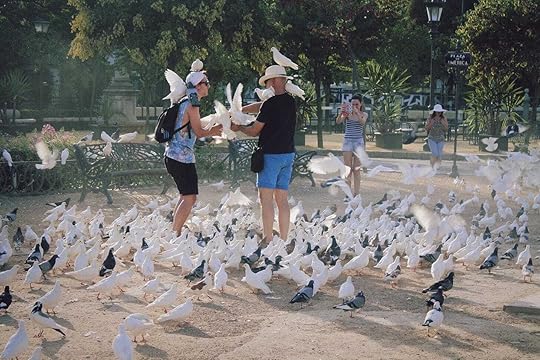
The first poem I wrote (worth its salt) was in response to the prompt to write a poem as though it were a prayer. As a freshman college student who had just left the church—by moving away from home & existing outside familial obligations for the first time—I’d never considered such a blasphemous thing before… So of course, I decided to dive right off the deep end. I went for the most well known prayer of all: In one sitting, I rewrote the Lord’s Prayer as a modern narrative.
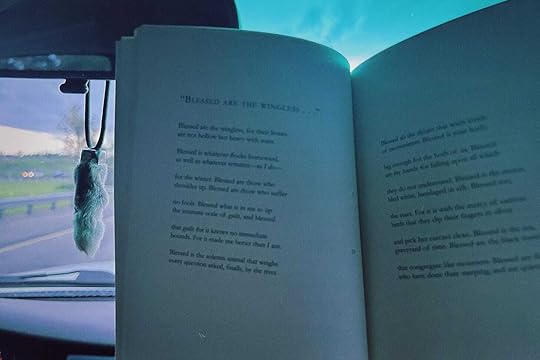
This piece ended up being my first real publication (in Issue 128 of TriQuarterly which was still in print & which my professors told me was cause to celebrate)… Naturally, I thought: “I must be onto something here!” & decided to explore this newfound way of expressing myself even further… I had known I wanted to be a writer since I was a child, but what I immediately realized & most enjoyed about poetry as a particular genre was this profound similarity to prayer (& to music).
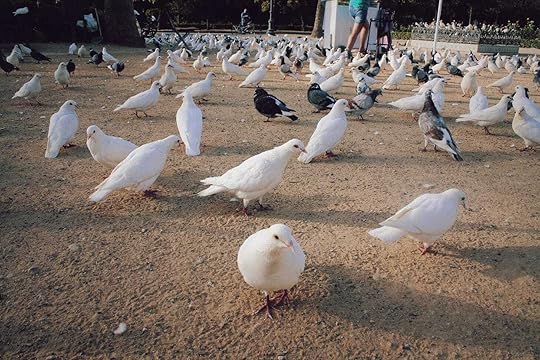
So writing poetry rather quickly replaced closing my eyes to say a prayer before bed, & I found myself more replenished in the solitude of this act than by most acts. Thus, I found myself in the company of poets, pursuing it as a path almost fervently… There came a time when I even called poetry my only religion, & in truth it had become exactly that. Yet the only other poem I produced which took the shape of a recognizable religious text is the one I present to you in this post.

Even after I stopped attending church regularly, the way I dealt with my more conservative family members—or fielded the questions of those whose opinions I still greatly cared about—was simple enough… I told everyone who asked that I still believed “the words in red.” As anyone who has owned a red letter edition of the Bible knows, I’m referring to dialogues attributed directly to Jesus Christ (& this was often sufficient to end the interrogation on the subject of my salvation).

Truth is, I’ve always found it easier to be irreverent about paternalistic figures (especially in monotheistic religions)—because of my distaste for authority, & my own trauma with both my parents. But I’ve always had a fondness for the more mischievous, misfit son who often causes a ruckus in the name of justice. When I rewrote the Lord’s Prayer, I remember feeling angry. But then I wrote my own take on this section of the Sermon on the Mount, all I felt was deep grief & loss…
 ~ The (Other) Beatitudes ~
~ The (Other) Beatitudes ~Blessed are the wingless, for their bones
are not hollow—but heavy with want.
Blessed is whatever flocks homeward,
as well as whatever remains—as I do—
for the winter. Blessed are those who
shoulder up. Blessed those who suffer
no fools. Blessed what is in me to tip
an intimate scale of guilt, and blessed
that guilt—for it knows no immediate
bounds. For it made me better than I am.
Blessed is the solemn animal that weighs
every question asked, finally, by the river.
Blessed is all the debris that waits inside
of our monuments. Blessed is your body—
big enough for the both of us. Blessed
are my hands for falling upon all which
they don’t understand. Blessed the moon,
bled white, bandaged in silk. Blessed too,
the stars—for it is with the mercy of carrion
birds that they dip their long fingers in silver
and pick her carcass clean. Blessed is the sea,
graveyard of time. Blessed are the black waves
that congregate like mourners. Blessed are those
who have done their weeping, and are quieter now.
Cecilia Llompart's Blog
- Cecilia Llompart's profile
- 14 followers



